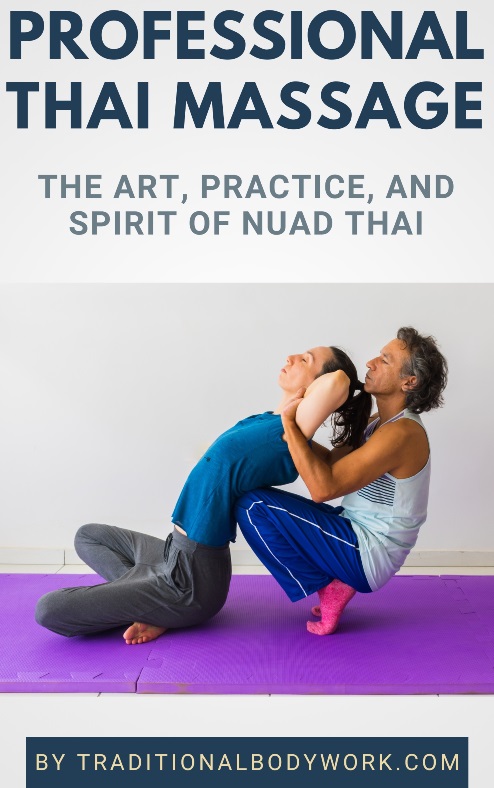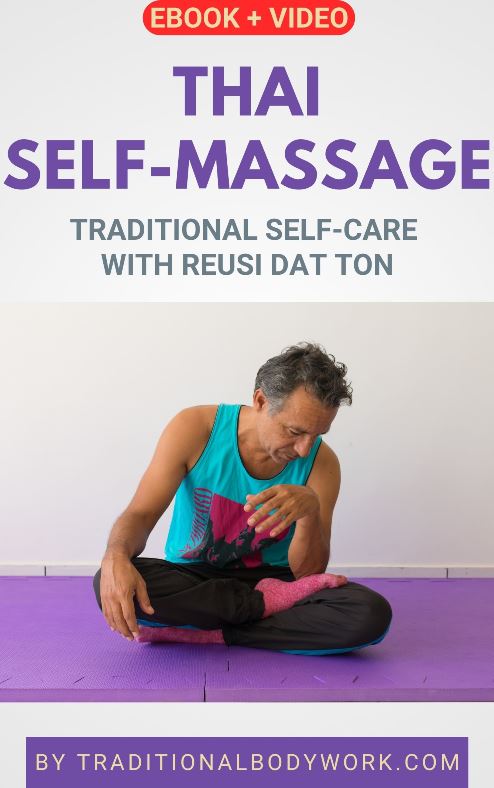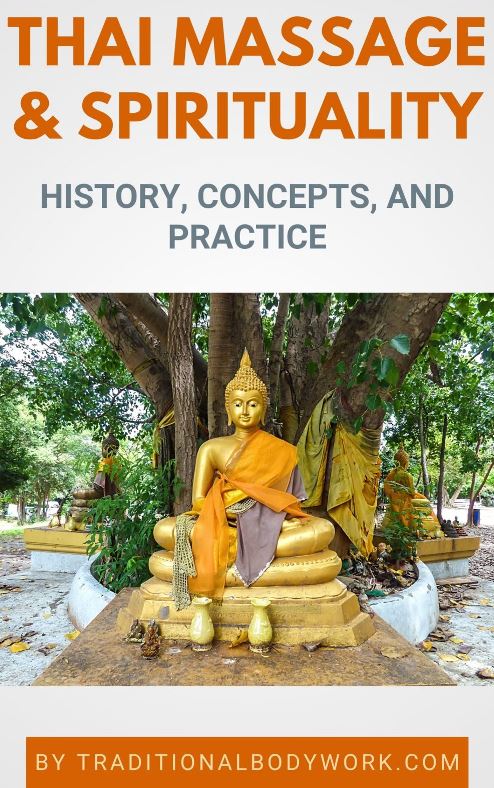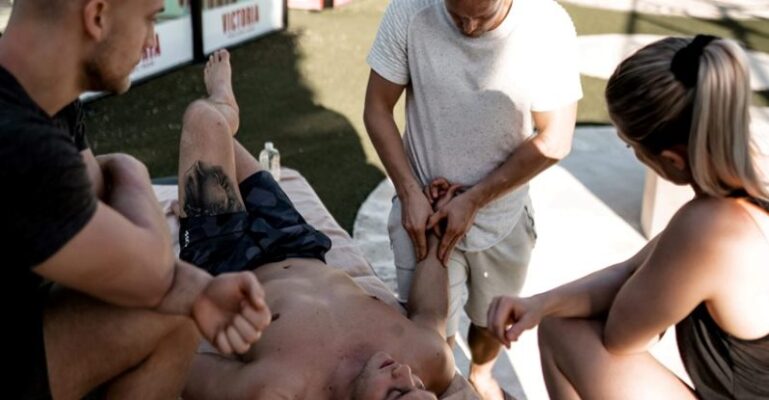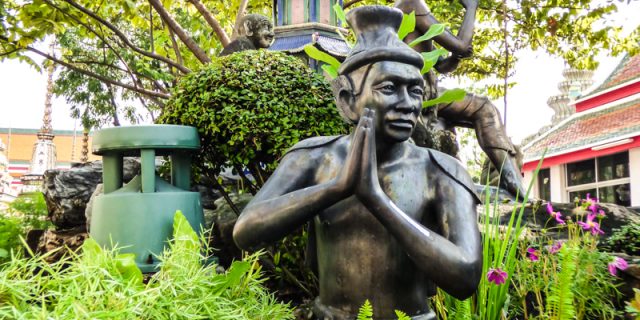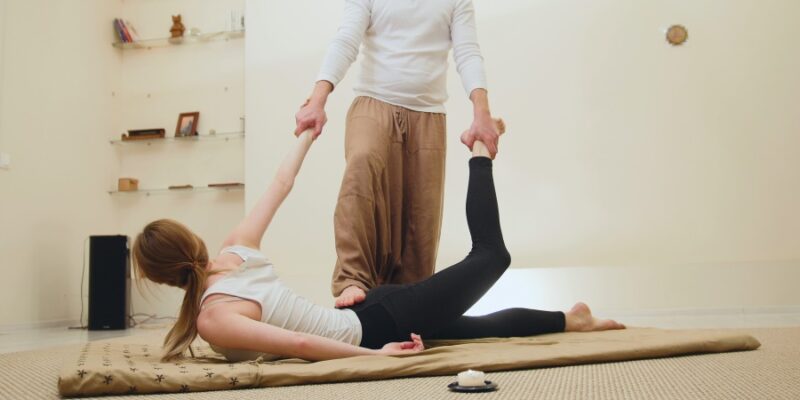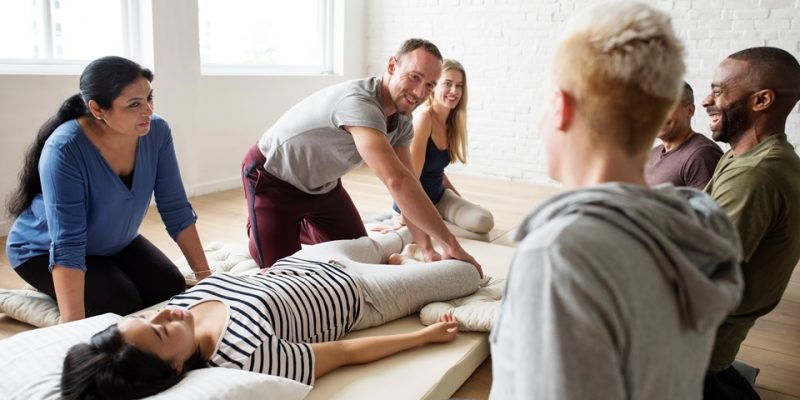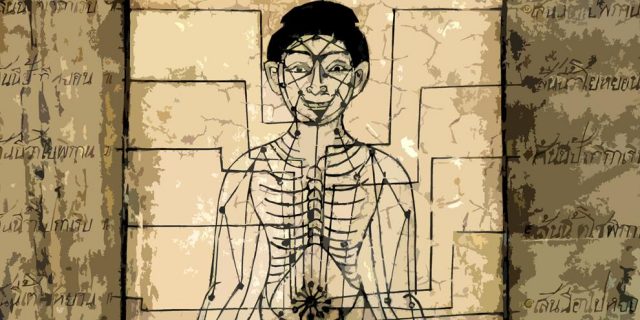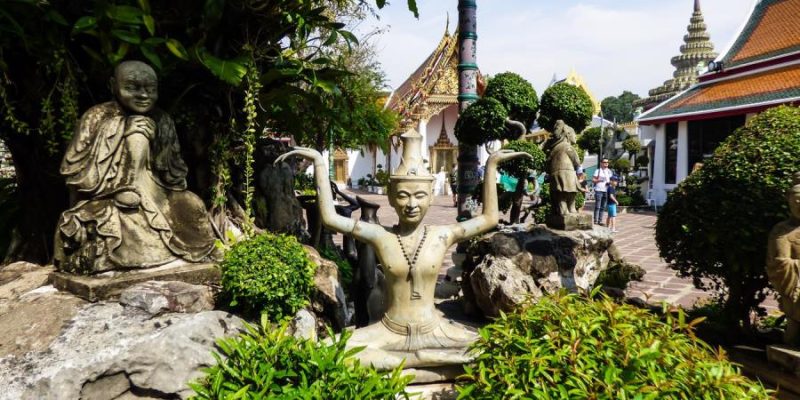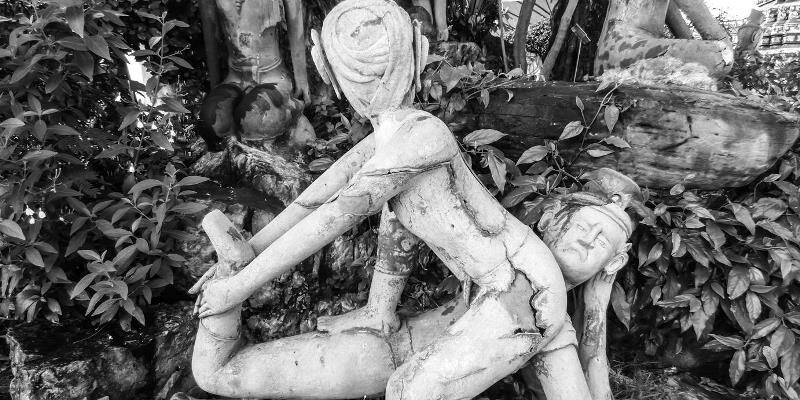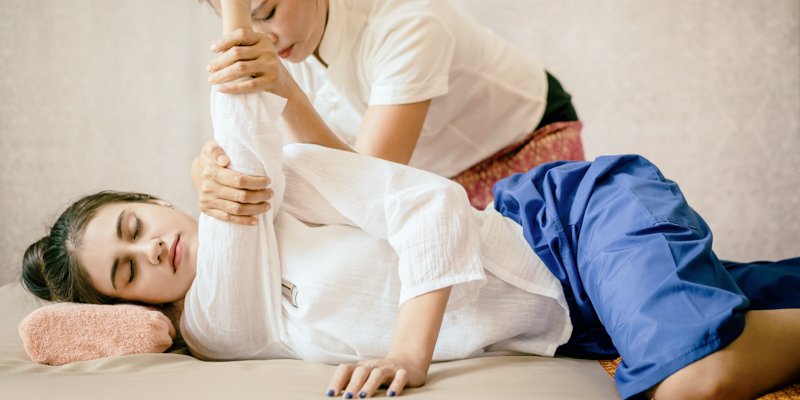
Learning Thai Massage in Thailand is much about “monkey see, monkey do,” and with Thai Massage Teacher Training it’s often not much different.
That doesn’t mean that learning Thai Massage in Thailand is wrong or flawed, not at all, it is just that the people in Thailand (and in many other Asian countries) are used to learn in very different ways compared to the way we do it in the West.
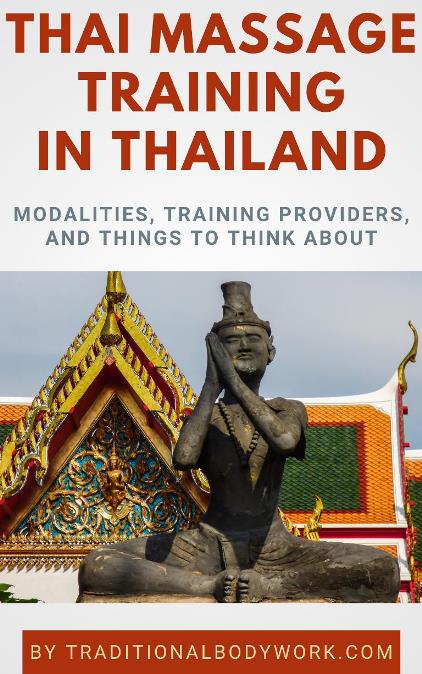
Learning (studying) anything in Thailand foremost means copying, without asking too many (bothering) questions, while incorporating and nurturing automatism. This has much to do with the place of tradition, authority, respect, and losing face in (Southeast) Asian societies. The real practical, more personalized, dynamic and creative study comes later, in real life, in real situations.
In the past, Thai Healing Arts training in Thailand was very different from what it is today — one would sit “at the Master’s feet” for an indefinite amount of time (could be many years), before one could even think about teaching. Practitioning the art well and responsibly would be of primary importance. Teaching would follow or not, later, and it was often something that grew or emerged naturally as a result of inclinations or circumstances.
Today, things are quite different. If one wants to become a Thai Massage instructor it takes in many cases, depending on the school or trainer, only one to three months. From scratch — even if one has had zero Thai Massage therapist experience before enrolling for the teacher training program.
Sure, in fast-paced teacher training courses there’s always a component of practice and supervised practical massage work, but to become a proficient Thai Massage therapist one needs considerable amount of real work in the real world, which depending on the number of treatment sessions one does could take years. There are no actual rules to that, it all depends, but it comes down to having had experience with all sorts of clients, men, women, children, tall, thin, obese, ill, healthy, disabled, young, old, pregnant, and so on, and so on.
So, when we look at Thai Massage Teacher Training “factories” like ITM Chiang Mai or TMC Chiang Mai, to just name some, things become somewhat ambiguous. Highly condensed instructor training programs are not (necessarily) inadequate, often even the opposite, but what goes wrong is that it shouldn’t be allowed to produce a (certified) Thai Massage teacher in one to three months time if the student has (had) very little actual practitioner experience.
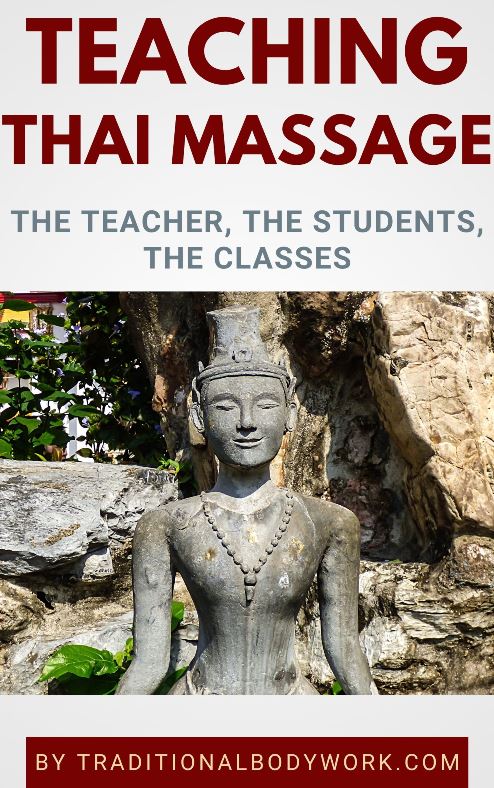
The attraction of those kind of training courses is obvious: known names, big names in the Thai Massage community, and because of that a sort of guarantee to make money in your home country if you are a Certified Thai Massage Teacher. I think, however, that it’s not only the schools who fail here (and the Thai government), but certainly also students. You see, it’s also the students who should think twice and take up their own responsibility.
It means, in my opinion, that teaching Thai Massage (or any other Thai Healing art) can be done only responsibly by very experienced therapists and should be accompanied with plenty accounts of real-life treatment experiences and examples. That can’t possibly be done after three months of training from scratch.
Only plenty of massage experience can make a Thai Massage instructor’s teachings valuable, authentic, flexible, accountable, and authoritative. Just dry theory and set sequences will not do the job — it produces rigid, limited, single, narrow-minded Thai Healing Arts practitioners, therapists, and teachers.
Yet, there are also alternatives to the “factory style” teacher trainings. Here we talk about Thai Massage schools and individual teachers that only train new teachers in a more “organic way,” like in the old days, allowing them to return and stay with the Master teacher for longer periods and learn intensively, and/or demand very extensive practitioning experience and proof additionally.
A few examples of the above are, among others, the Sunshine Network, the Baan Hom Samunphrai School, Loi Kroh Thai Massage & Yoga (for their Reusi Datton teacher training courses), and The Fine Art of Thai Massage.
Moreover, generally in Thailand, you could ask any individual Thai Healing Arts therapist or teacher to attend for longer periods to learn more and in-depth. Depending on the teachers or healers they will (under certain conditions) allow you to stay, look, learn, help, and assist in healing work and teachings.



